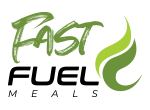
The Role of Protein-Rich Diets in Maintaining Muscle Health for Older Adults
As we age, maintaining muscle health becomes increasingly crucial for overall well-being and mobility. Muscle mass naturally declines with age, a process known as sarcopenia, which can lead to reduced strength, frailty, and a decreased quality of life. For older adults, adopting a protein-rich diet is a key strategy in preserving muscle health and preventing age-related decline. This blog explores the role of protein in supporting muscle health for older adults, the importance of adequate protein intake, and the potential benefits and effects of higher protein diets.
Understanding Muscle Loss as a Consequence of Ageing
One of the most significant challenges older adults face is muscle loss, which is a natural consequence of ageing. This decline in muscle mass begins around the age of 30 and accelerates with advancing age, leading to a gradual reduction in muscle strength and function. Sarcopenia not only impacts mobility but also increases the risk of falls, fractures, and other health complications. The consequence of ageing makes it essential to focus on nutrition and exercise to counteract muscle deterioration.
Protein plays a critical role in muscle maintenance and repair. Adequate protein intake helps slow down the rate of muscle loss by providing the necessary building blocks for muscle synthesis. This is particularly important for older adults, as they tend to have a reduced ability to synthesise muscle proteins compared to younger individuals. Hence, a diet rich in protein becomes vital for sustaining muscle mass and overall health.
How Protein-Rich Diets Help in Maintaining Muscle Mass
A protein-rich diet is essential for maintaining muscle mass in older adults. Muscle tissue is made up of proteins, and consuming sufficient dietary protein helps replenish and repair muscle fibres that are constantly being broken down and rebuilt. A lack of adequate protein can lead to accelerated muscle loss, making it difficult to retain muscle strength and function.
For older adults, the recommended dietary allowance (RDA) for protein is often higher than for younger individuals. Research suggests that older adults may benefit from consuming at least 1.0 to 1.2 grams of protein per kilogram of body weight daily to support muscle health. This amount can help mitigate muscle loss and enhance muscle protein synthesis, thereby promoting muscle retention and improving overall strength.
The Effects of Higher Protein Diets on Muscle Health
One of the key effects of higher protein diets is their ability to promote muscle protein synthesis, which is essential for maintaining and building muscle mass. Higher protein intake can also help improve muscle function, which is critical for older adults in maintaining independence and reducing the risk of falls and fractures. In addition, consuming more protein can help regulate body weight and body composition by increasing satiety and supporting metabolic health.
Research has shown that older adults who consume a diet higher in protein experience slower rates of muscle loss and better physical performance. High-quality protein sources, such as lean meats, fish, eggs, dairy products, beans, and legumes, provide essential amino acids that are necessary for muscle repair and growth. Incorporating these protein-rich foods into daily meals can have a significant impact on preserving muscle health and function.
The Importance of Preventing Protein Deficiency in All Adults
Preventing protein deficiency in all adults is essential, but it is particularly crucial for older individuals who are at a higher risk of malnutrition and muscle loss. A protein deficiency can lead to a weakened immune system, decreased bone density, and increased susceptibility to infections and illnesses. For older adults, inadequate protein intake can accelerate the decline in muscle mass and strength, making it more difficult to perform daily activities and maintain an active lifestyle.
To prevent deficiency, older adults should focus on including a variety of protein sources in their diet. This can help ensure they get all the essential amino acids needed for muscle maintenance and overall health. Combining protein intake with regular physical activity, especially resistance training exercises, can further enhance muscle protein synthesis and help maintain muscle mass.
Protein-Rich Foods to Improve Health and Muscle Function
Incorporating protein-rich foods into the diet can significantly improve health and muscle function for older adults. Foods such as chicken, turkey, lean cuts of beef or pork, fish, eggs, dairy products like milk, yogurt, and cheese, as well as plant-based sources like beans, lentils, nuts, seeds, and tofu, provide high-quality protein and essential nutrients that support muscle health.
Consuming a balanced diet that includes these foods can help older adults maintain muscle strength, promote bone health, and enhance their overall quality of life. In addition, spreading protein intake evenly throughout the day, rather than consuming most of it in one meal, can optimise muscle protein synthesis and provide sustained energy levels.
Understanding the Effects of Ageing on Muscle Health
Understanding the effects of ageing on muscle health is critical for older adults and their caregivers. As people age, they experience changes in muscle composition, reduced muscle protein synthesis, and a decline in anabolic hormones like testosterone and growth hormone, which contribute to muscle loss. Furthermore, factors such as chronic inflammation, reduced physical activity, and inadequate nutrition can exacerbate muscle deterioration.
Recognising these effects underscores the importance of proactive measures, such as adopting a protein-rich diet and engaging in regular exercise, to preserve muscle health. By focusing on these factors, older adults can help offset the negative impacts of ageing and maintain their strength and mobility.
The Role of Exercise in Maintaining Muscle Health
While diet plays a crucial role, exercise is equally important in maintaining muscle health for older adults. Resistance training exercises, such as weight lifting, resistance band exercises, or body-weight exercises, are particularly effective in promoting muscle growth and preventing muscle loss. These exercises stimulate muscle protein synthesis and help improve muscle strength and endurance.
Combining a protein-rich diet with regular exercise can provide the best outcomes for maintaining muscle mass and function. Older adults should aim to incorporate a mix of aerobic, resistance, and flexibility exercises into their routine to support overall health and well-being.
Conclusion
The decline in muscle mass is an inevitable consequence of ageing, but it is not unavoidable. By embracing a protein-rich diet, older adults can significantly improve health and maintain muscle mass, strength, and function. The effects of higher protein diets include enhanced muscle protein synthesis, better physical performance, and improved quality of life.
To achieve these benefits, older adults should focus on consuming adequate protein from high-quality sources and combining this intake with regular physical activity. Preventing deficiency in all adults, especially in older populations, is key to promoting healthy ageing and preserving independence and mobility. By taking these steps, older adults can enjoy a more active, fulfilling, and healthy life, even as they age. Meanwhile, if you’re looking for healthy prepared meals, Fast Fuel Meals is here for you with a mouthwatering menu!
